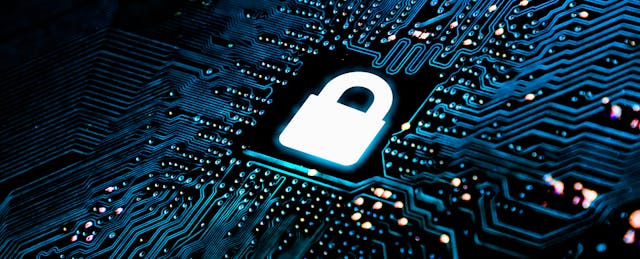Bitcoin is volatile. Even so, a growing number of colleges are exploring how the technology behind cryptocurrencies could change the way students communicate their academic accomplishments to employers.
That technology is called blockchain, and it's a way to maintain digital records that can't be tampered with.
So what are colleges already doing to experiment with blockchain?
We recently held an online discussion to explore that question as part of our monthly EdSurge Live series. To help us sort through it, we were joined by Michael Mathews, vice president of technology and innovation at Oral Roberts University and a frequent speaker on the use of blockchain in higher education.
Not everyone is sold on whether this technology is worth the effort. A cryptography expert who turned up during the session pressed the point that other, earlier, more commonplace technologies could be used to do the job of helping people share their credentials easily, and in a way that is hard to fake.
Listen to the recording, or read a partial transcript below, which has been lightly edited for clarity.
EdSurge: So why do you see blockchain as a transformative technology for education?
Mathews: Here’s an example: I get a call this weekend from somebody who used to be an athlete from a different school, and he said, ‘I can't get my transcript, and I need it for a job.'
The old way, it takes him eight days to get his transcript. If I invest the time and money to earn a degree or certificate or diploma, I paid for it, I invested the time, I should have instant access to it.
[With a credential on blockchain, a student can bring up a digital record proving their credential instantly, without having to ask the college to do anything.]
Blockchain has nothing to do with Bitcoin or cryptocurrency. Blockchain should be perceived as internet 4 [a new version of the internet]. It's a secure way to transfer information on the internet.
Could you just give a quick primer on Blockchain?
What's really new about it and revolutionary is the security of it. If you've ever used an online library, you'll go on a computer, you'll look at the bibliographical information, and behind that is 700 lines of code that you don't see, called the MARC code. That code allows me to look at any book on any bookshelf around the world but the promise is that no two books can exist in the exact same spot.
That whole MARC code and the ISBN numbers on every book is managed by the U.S. Library of Congress and that ensures that no two books end up in the same spot on a bookshelf. So in essence, what I'm doing is I'm checking out the book and checking it back in without taking it for good. I can't really change anything in that book because it's already been typed up or if it's a digital version, same thing.
So blockchain is exactly the same thing. It allows me to check in and out my transcript or other smart contracts, but I can't change it. And no two contracts or no two transcripts can end back in the same spot that they left. And therefore, it's a secure mechanism to make sure that people aren't using other people's information or data.
Just to play devil's advocate for a minute, it seems like a lot of technology and a lot of effort to address those challenges of transcript fraud or the speed of delivering transcripts. What would you say to someone who thinks this is nice, but not worth the effort?
I would say they're misinformed. So for me to do blockchain certificates took three phone calls and [was not difficult to set up]. So it's a very small investment of time. It costs no extra computer power, no extra systems on our campus. It's almost a no-brainer.
How many colleges are you seeing out there dabbling with blockchain certificates and credentials?
I would say there's probably 400 colleges and universities that say, ‘Hey, we want to know how this works.’ In fact, we just had one at Oral Roberts University yesterday.
New Mexico College was actually the first one to do the whole community college on blockchain.
And so I would say it's still low end right now [who are actually using it]. It'll be the consumer who says, ‘How come Walmart does blockchain and I can actually hold my smartphone up to the produce and find out what field that that came from, but I can't get my transcript yet?’ That makes no sense.
[audience question] So I don't mean to sound aggressive but I'm a cryptographer. I do research in this area. I've taught classes, and I think it's beautiful technology. I just totally don't get the applications in education at all. It seems to me what the speaker is talking about is having electronic documents with digital signatures. That's old and beautiful and wonderful tech—well established, non-disruptive technology which deserves to be more widely used but it has nothing to do with the Blockchain. [Why not just use that?]
Because universities like yours and mine will shut down at Christmas and Thanksgiving and people can't get access [to their credentials] unless they've signed up with a clearinghouse. And if there's a hold on their account, they still can't get it from clearinghouse. If your university and mine are hindering people from getting access to what they paid for, is that fair to them?
Audience Member: That's not the way digital signatures work. A digital signature is something that's issued on a document that can be verified at any point—whether or not the person is home or on vacation—as long as you have their public key.
You could be right, but I would challenge you: Go on your student information system and do that for me by Monday. Do exactly what you just said. [Colleges don’t actually do that.]


